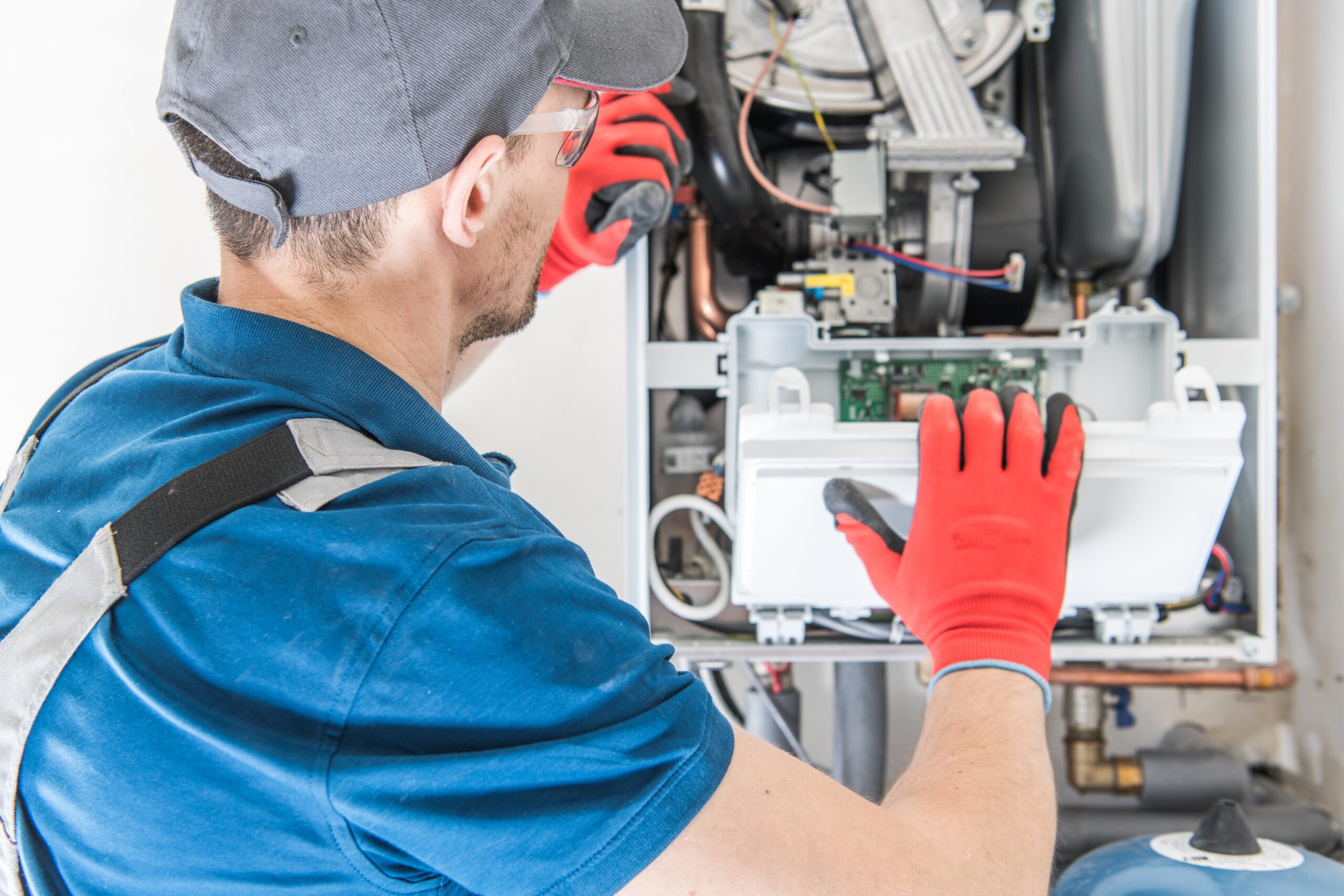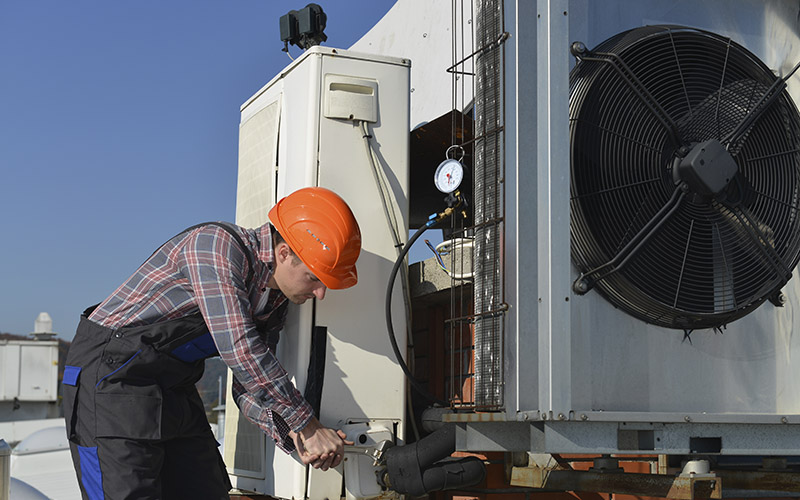Warning Signs It's Time for a furnace replacement
Warning Signs It's Time for a furnace replacement
Blog Article
Picking In Between a Heatpump and Heater: Trick Factors To Consider for Your A/c Requirements
When examining home heating options for a/c needs, the choice in between a warm pump and a furnace can be complicated. Each system provides distinct benefits tailored to details environments and energy effectiveness goals. Recognizing these differences is important for making an educated choice. Key aspects such as installation prices and environmental impact further make complex the choice procedure. Which choice really straightens with one's comfort and sustainability choices? The complying with sections will certainly check out these considerations thoroughly.
Understanding Heat Pumps: Just How They Function and Their Benefits
While numerous home owners think about various heating options, recognizing how warmth pumps feature and their benefits can considerably influence their decision. Heatpump run by transferring warm as opposed to generating it. In the winter months, they extract warm from the outdoors air or ground and transfer it inside your home, while in the summer season, they reverse this process, cooling the home by eliminating heat outside. This double performance makes them flexible for year-round climate control.One of the main benefits of warm pumps is their energy performance. They use significantly much less electricity contrasted to typical furnace, potentially causing lower energy expenses (furnace replacement). In addition, warmth pumps have a smaller carbon footprint, making them an eco-friendly option. They likewise need much less upkeep than traditional systems, adding to lasting price financial savings. On the whole, understanding the technicians and advantages of heat pumps can help property owners make educated decisions regarding their home heating and cooling down needs
Exploring Furnaces: Kinds, Procedure, and Advantages
Furnaces can be found in different types, consisting of gas, electric, and oil models, each with unique operational mechanisms. Understanding these differences is essential, as they influence performance and home heating performance. Additionally, heaters provide countless advantages, such as constant heat output and integrity in chillier climates.
Sorts of Heating systems
Furnace can vary substantially in style and operation, with heaters being a popular selection among property owners. There are several kinds of heating systems, each utilizing various fuel resources and modern technologies. Gas heating systems are typical, leveraging all-natural gas to produce warm successfully. Electric heating systems, on the other hand, make use of electric resistance to create warmth, usually favored for their uncomplicated setup. Oil heaters, while much less typical, work in areas with restricted gas gain access to (ductless mini splits). Additionally, condensing heaters maximize energy performance by reusing and recording exhaust gases. Each type runs through a system of warm exchangers and ductwork to disperse cozy air throughout a home. Comprehending the differences between these heating system kinds is important for educated HVAC choices
Advantages of Furnaces
For property owners looking for reputable heat throughout cold months, the benefits of heaters are considerable. Furnaces supply consistent home heating, making sure also temperatures throughout the home. They are especially efficient in severe cool, typically exceeding warm pumps in freezing conditions. Numerous kinds, consisting of gas, electric, and oil heating systems, provide versatility to satisfy varied demands and preferences.Furnaces additionally tend to have lower initial installation expenses compared to heat pumps, making them a much more accessible option for numerous. Their robust design adds to a longer life-span, with many devices lasting over 15 years with correct maintenance. Furthermore, contemporary heating systems are frequently outfitted with advanced innovation for improved efficiency, which can cause minimized power expenses. On the whole, heaters continue to be a reputable option for efficient home heating.

Energy Effectiveness: Comparing Warm Pumps and Furnaces
When comparing power performance in between heat pumps and heating systems, the Seasonal Power Efficiency Proportion (SEER) plays an essential function in establishing performance. Furthermore, an operational price evaluation discloses the long-term monetary ramifications of each system. Recognizing these factors can assist home owners in making informed decisions regarding their heating options.
Seasonal Power Performance Ratio
Energy efficiency plays a vital duty in the decision-making procedure in between warmth pumps and furnaces, particularly when considering the Seasonal Energy Efficiency Ratio (SEER) This metric procedures the cooling performance of warmth pumps over a whole cooling season, offering a standard means to evaluate efficiency. Higher SEER scores indicate higher power efficiency, converting to lower power intake and minimized energy expenses. In contrast, furnaces are usually examined utilizing the Annual Fuel Usage Efficiency (AFUE) ranking, which mirrors heating efficiency. When comparing these 2 systems, homeowners should focus on SEER rankings for warm pumps, as they directly influence total energy savings and ecological sustainability. A comprehensive understanding of SEER can notably affect the long-lasting complete satisfaction and cost-effectiveness of the chosen cooling and heating option.
Operational Price Analysis
Comprehending the operational prices connected with heatpump and heaters is important for property owners examining their alternatives. Heatpump normally supply greater power efficiency, converting electrical power right into warm with marginal waste. This causes lower regular monthly energy costs, especially in moderate environments. On the other hand, conventional furnaces, specifically gas versions, read more may have reduced in advance costs but can incur greater functional expenses with time as a result of fuel prices and performance ratings.Moreover, heatpump can operate as both heating and cooling down systems, potentially reducing the need for separate cooling and heating devices. While initial financial investments for heatpump might be greater, their long-lasting cost savings in power performance can make them an extra affordable choice for several households. Mindful analysis of neighborhood energy prices is vital to determine the very best alternative.
Installment Expenses: What to Anticipate for every Home Heating System
Installment costs for heater can differ substantially in between warm pumps and furnaces, affecting home owners' decisions. Warmth pumps usually have higher in advance installment prices, commonly ranging from $3,500 to $8,000, depending upon the unit size and complexity of installment. This consists of the outside device, interior handling system, and essential ductwork modifications. On the other hand, furnaces have a tendency to have lower initial expenses, balancing in between $2,500 and $6,000, which can be appealing for budget-conscious home owners. Nevertheless, installation expenses can enhance if considerable ductwork is required.Moreover, the choice of fuel kind for heating systems-- natural gas, gas, or electrical-- can additionally impact installation costs. While heatpump use energy effectiveness, their first financial investment might discourage some purchasers. Inevitably, evaluating installment expenses together with long-term financial savings and effectiveness will aid home owners in making educated decisions concerning their furnace.
Environment Considerations: Which System Carries Out Much Better in Your Area
How do environment conditions influence the efficiency of furnace? The efficiency of warmth pumps and heating systems can vary significantly depending upon the regional climate. In moderate climates, heat pumps succeed by efficiently transferring warm from the outside air, making them an energy-saving option. Their performance diminishes in incredibly cold temperatures, where they might have a hard time to draw out adequate heat. Alternatively, heaters, specifically gas designs, offer reliable and regular warmth despite outside problems, making them preferable in colder regions.In locations that experience milder winters months, heatpump can run efficiently year-round, giving both home heating and air conditioning. On the other hand, areas with severe winters typically gain from the effectiveness of heating systems. Inevitably, understanding the local climate is necessary when determining in between a warmth anonymous pump and a heating system, as it straight impacts their operational performance and total performance.
Upkeep Demands: Long-Term Look After Heat Pumps vs. Furnaces
While both heatpump and heating systems need regular maintenance to assure peak performance, their particular demands and care routines vary substantially. Furnaces commonly need much less regular focus, with annual assessments being adequate to look for gas leakages, clean filters, and examine overall capability. Their simpler style usually enables uncomplicated repairs.In contrast, warmth pumps require biannual upkeep because of their twin role in cooling and heating. This consists of cleansing coils, inspecting refrigerant degrees, and making sure that both the outside and interior units work at their ideal. In addition, heatpump upkeep commonly includes more detailed elements, making specialist servicing essential.Neglecting upkeep can result in reduced efficiency and raised power costs for both systems. Eventually, house owners should think about these long-term look at these guys treatment needs when choosing between a heat pump and a furnace, as aggressive upkeep can prolong the life expectancy and efficiency of either system significantly.
Ecological Impact: Choosing a Lasting Home Heating Choice
The environmental influence of furnace is a vital assessment for house owners looking for lasting choices. Warm pumps are typically much more energy-efficient than typical heaters, as they move heat instead of create it, greatly reducing carbon emissions. By using sustainable power resources, such as air-source or geothermal heatpump, house owners can additionally lessen their eco-friendly footprint.On the other hand, gas furnaces give off greenhouse gases and add to air contamination, though they typically give greater warmth result. Improvements in modern technology have led to the growth of high-efficiency furnaces that decrease emissions.Ultimately, picking a heating system includes weighing efficiency against environmental effect. House owners are urged to review neighborhood energy resources and motivations for renewable systems, making certain a choice that aligns with both personal convenience and ecological responsibility. The choice impacts not just instant convenience yet additionally long-lasting sustainability and environmental health.
Often Asked Questions
How Long Do Warm Pumps and Furnaces Typically Last?
The life expectancy of heatpump usually ranges from 15 to twenty years, while heating systems can last in between 15 to thirty years. Routine maintenance substantially influences their durability and performance in giving heating services.
Can I Utilize a Heatpump in Exceptionally Cold Climates?
Warm pumps can operate in incredibly cold climates, however their efficiency lessens as temperatures decline. In such conditions, supplementary home heating sources might be needed to keep comfy indoor temperature levels and assure peak performance.

What Is the Sound Degree of Warmth Pumps Versus Furnaces?
The sound levels of warmth pumps and heaters differ considerably. Generally, heatpump run even more quietly than standard furnaces, making them more effective for those conscious appear, while heaters may produce louder functional noises throughout home heating cycles.
Are Warmth Pumps Suitable for Both Heating and Air conditioning?
Heat pumps are without a doubt appropriate for both heating & cooling (heat pump replacement ooltewah tn). They operate by transferring warm, supplying reliable temperature level control year-round, making them a functional choice for house owners looking for an all-in-one HVAC service
What Dimension Heater Do I Required for My Home?
Establishing the suitable dimension heating unit for a home calls for examining elements such as square footage, insulation quality, neighborhood climate, and the home's layout. Consulting an expert can guarantee a precise assessment and excellent comfort. Warm pumps normally use greater power effectiveness, transforming electrical energy right into warmth with minimal waste. In moderate climates, warmth pumps stand out by efficiently transferring heat from the outdoors air, making them an energy-saving choice. On the other hand, furnaces, specifically gas models, offer consistent and trustworthy warmth no matter of outside conditions, making them better in colder regions.In areas that experience milder winters, heat pumps can operate effectively year-round, providing both heating and air conditioning. Warmth pumps are usually a lot more energy-efficient than conventional heaters, as they move heat instead than generate it, substantially reducing carbon discharges. By making use of sustainable energy sources, such as air-source or geothermal heat pumps, home owners can even more reduce their environmental footprint.On the various other hand, natural gas furnaces emit greenhouse gases and contribute to air pollution, though they frequently offer greater heat result.
Report this page